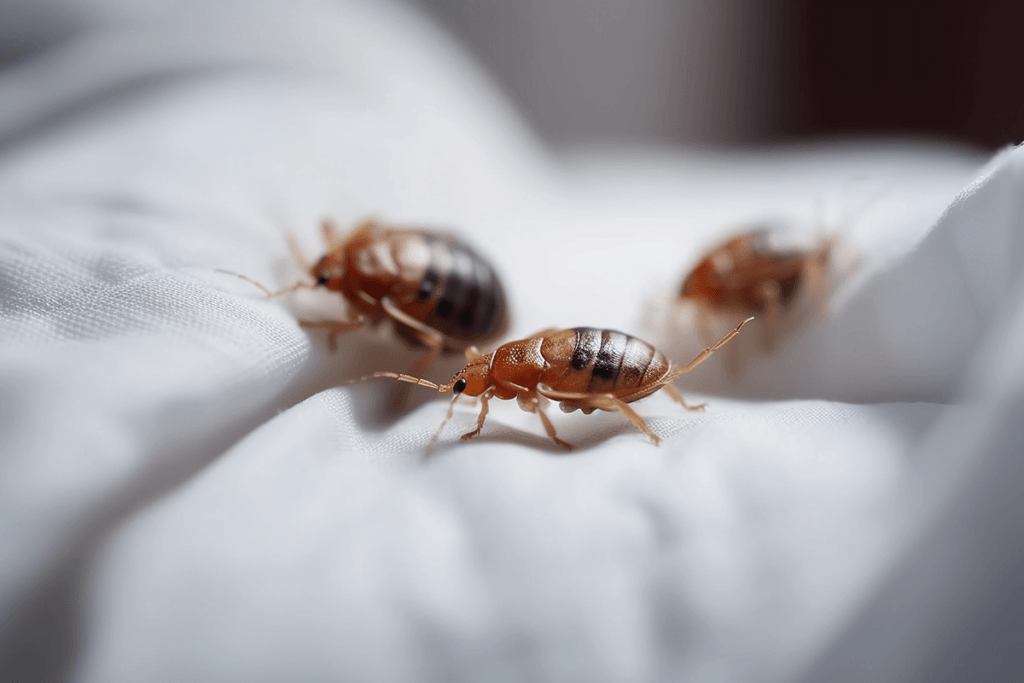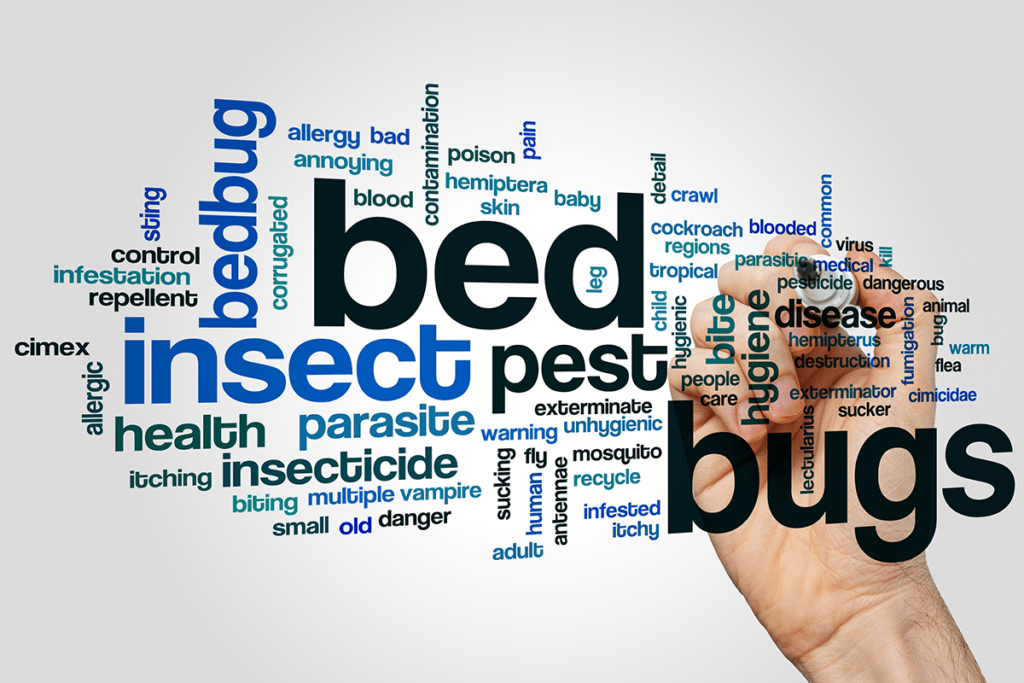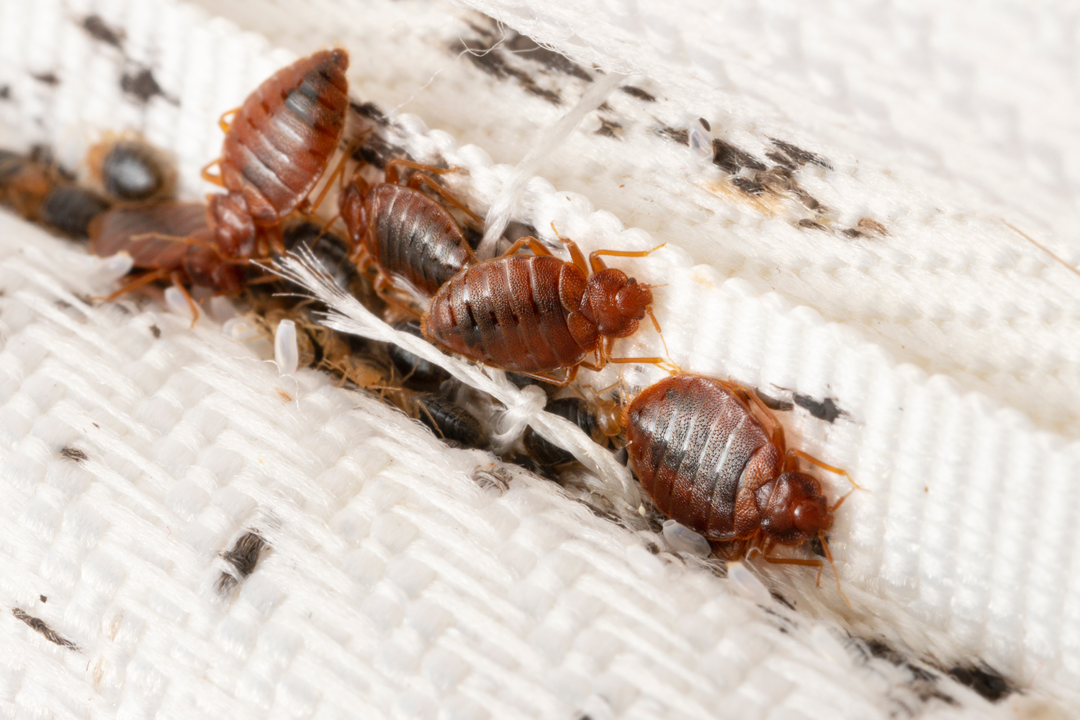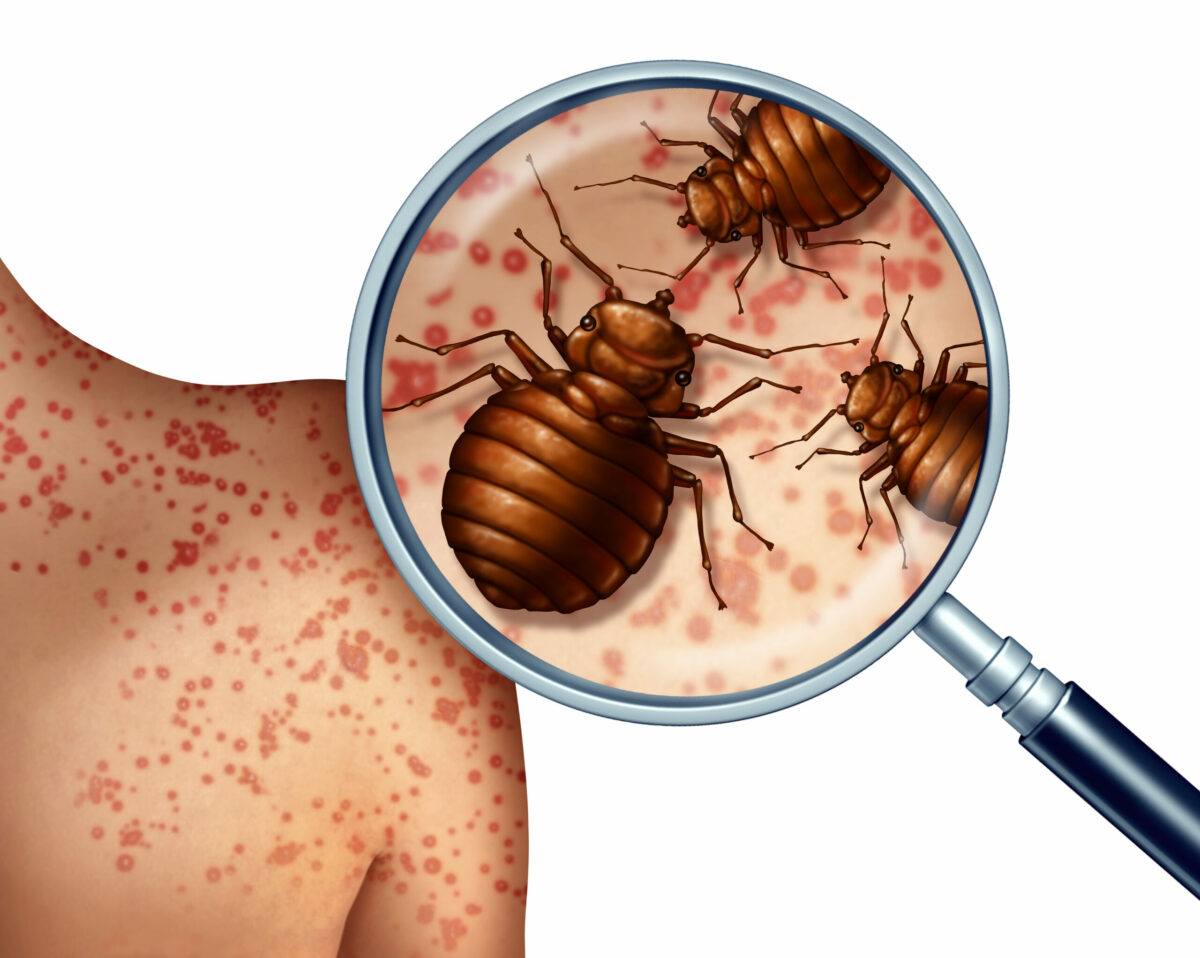Navigating New York City’s bed bug laws can be a daunting task for both tenants and landlords. With a dense population and numerous apartment buildings, bed bug infestations can quickly become a nightmare for all parties involved. Understanding the legal obligations of landlords and the rights of tenants amid a bed bug outbreak is crucial for a successful resolution of the problem.

Bed bugs are not only a nuisance but can also pose health risks and create a financial burden. As such, New York State has implemented various statutes and regulations designed to address infestations in residential rental properties. By examining these laws, tenants and landlords alike will have a better grasp on how to approach situations involving bed bugs.
Armed with this knowledge, it is crucial for tenants to utilize their rights and take appropriate measures to protect themselves. Similarly, landlords must understand their legal responsibilities to ensure they maintain a safe and habitable environment for their tenants. This article aims to guide you through the complex landscape of New York City’s bed bug laws and provide essential tips for both tenants and landlords to navigate these challenges.
Key Takeaways
- New York City has specific laws to address bed bug infestations in rental properties
- Understanding the legal obligations of landlords and rights of tenants is crucial during an infestation
- Both parties must take appropriate action to maintain a safe and habitable living environment
Understanding Bed Bugs
Before we dive into landlord responsibilities and tenant rights, let’s take a moment to understand bed bugs. These pesky little creatures, Cimex lectularius, are small, flat, and oval-shaped. They typically grow to about 4-5 millimeters in length and are reddish-brown in color.
Bed bugs are nocturnal insects, which means they come out at night to feed on human blood. Don’t worry, though, they’re not known to transmit diseases. They usually hide in cracks, crevices, and folds of mattresses, box springs, and other furniture. Here are some quick facts about bed bugs:
- Lifespan: 4-6 months under normal conditions
- Feeding: Prefer to feed on human blood, but can also feed on pets
- Reproduction: Females lay 200-250 eggs; two weeks for eggs to hatch and five weeks for nymphs to grow into adults
Now that we have a better understanding of bed bugs themselves, let’s look at how they can become a problem in New York City apartments.
In NYC, bed bug infestations can escalate quickly due to the high density of people and the connected nature of apartment buildings. When it comes to controlling these pests, it’s essential to address the issue early. Time is of the essence, as female bed bugs can lay up to 12 eggs per day.
For a more in depth look at bed bugs check out our blog on bed bug basics.
Statutes and Regulations
New York City Health Code
Navigating bed bug laws in New York City can be tricky, so it’s essential for both landlords and tenants to know the basics. In NYC, bed bug regulations fall under the city’s Health Code, specifically Article 151, which pertains to pest prevention and management.
One crucial aspect every tenant should be aware of is the Bed Bug Disclosure law (NYC Admin Code § 27-2018.1). This law requires landlords to provide new tenants with a written notice of any bed bug infestations in their building within the past year. The notice should specify the date, location, and method used to eliminate the infestation. We’ve summarized the important details below:
- Law: Bed Bug Disclosure (NYC Admin Code § 27-2018.1)
- Requirement: Landlords must provide written notice of bed bug infestations within the past year to new tenants.
- Details to include: Date, location, and method used to eradicate infestation.
Now, if there is a bed bug infestation in a tenant’s apartment, landlords are responsible for eradicating the pests. According to NYC Health Code Section 151.02, the owner (landlord) of a building is required to take prompt action to eliminate bed bugs and maintain a pest-free environment. Here are the essential requirements:
- Law: NYC Health Code Section 151.02
- Requirement: Landlords must take prompt action to eliminate bed bugs and maintain a pest-free environment.
- Tenant’s responsibility: Report any signs of infestation immediately to the landlord.
It’s also crucial to understand that tenants have responsibilities when it comes to bed bug prevention. For instance, it’s up to the tenant to keep their living space clean and free of clutter. This not only makes it less appealing to bed bugs but also makes it easier for landlords to assess and treat any potential infestations.
Finally, landlords need to inform tenants of their responsibilities, including how to prevent and report bed bug infestations. This should be done not only during the lease signing but also through ongoing communication and education efforts.
In summary, understanding New York City’s bed bug laws and each party’s responsibilities is crucial in effectively handling an infestation. Familiarizing oneself with the legal requirements can save both landlords and tenants time, money, and stress.
Landlord’s Responsibilities
Pest Control Requirements
As landlords, we are required to provide homes free of bed bugs for our tenants. New York City law requires landlords to eliminate bed bug infestations within 30 days of receiving written notice from the tenant. This might include:
- Hiring a licensed exterminator with experience in bed bug eradication.
- Providing proof of extermination to the tenant within five days of treatment.
- Ensuring the licensed exterminator has submitted an affidavit to the Department of Housing Preservation and Development confirming the treatment was successful.
Tenant Notification
It’s our responsibility to inform all tenants in the building about bed bugs in a clear and timely manner. New York City law mandates that we:
- Provide a written notice to the tenant before they move-in, disclosing any recent bed bug infestations in the building within the past year. This notice includes:
- The affected areas and units.
- The date when the infestation was first reported.
- The date when the last inspection was performed.
- Update the annual building-wide bed bug infestation history. We should keep the Building Information System updated with the history of pest control measures taken.
Repairs and Maintenance
As landlords, we are responsible for carrying out repairs and maintenance on our properties to prevent and control any bed bug infestations. Some key tasks include:
- Sealing any cracks, crevices, or holes in the building where bed bugs can hide or enter.
- Ensuring all common areas, including laundry rooms and communal spaces, are clean and free of potential bed bug hiding spots.
- Regularly inspecting building infrastructure, such as pipes, electrical conduits, and heating systems, to identify areas that need repair or maintenance to prevent bed bug infestations.
By following these guidelines and adhering to New York City bed bug laws, we can ensure the protection of both landlord and tenant rights, and work together to create a safe and healthy living environment.
Tenant’s Rights
Moving into a new apartment in New York City can be exciting, but we all dread dealing with unexpected problems like bed bugs. Fortunately, there are laws in place that protect tenants from infestations. In this section, we’ll explore some of the most crucial rights that tenants have when it comes to dealing with bed bugs.
Legal Recourse
If we discover bed bugs, our first step must be to notify the landlord in writing, giving them a reasonable amount of time to address the issue. If the landlord fails to take action or doesn’t do so effectively, we have the right to take legal action.
Some options for legal recourse include:
- Filing a complaint with the New York City Department of Housing Preservation and Development (HPD)
- Taking the landlord to Housing Court for a violation of the Warranty of Habitability
- Pursuing a private lawsuit for negligence, breach of contract, or other claims
Rent Abatement
When a bed bug infestation disrupts our use and enjoyment of our apartment, we might be eligible for rent abatement. Rent abatement is a partial or complete reduction of rent for a period of time, as a compensation for the harm and loss of our quality of life.
To apply for rent abatement, we need to:
- Document the infestation: Photographs, pest control receipts, or an exterminator’s written report are examples of valid proof.
- Calculate the abatement amount: The severity of the infestation and its impact on our lives will determine the percentage of rent abatement we can request.
- Negotiate with our landlord: We can either reach an agreement on the abatement or proceed with a formal legal route.
Withholding Rent
If our landlord still fails to address the bed bug problem, as a last resort, we have the right to withhold rent. We need to consider this path cautiously, as it may lead to legal proceedings. As we exercise this right, we must:
- Keep our rent payments in an escrow account to show our willingness to pay once the issue is resolved.
- Have proof of our landlord’s knowledge of the problem and their failure to act.
- Be prepared for potential consequences, such as eviction lawsuits.
No one wants to deal with bed bugs, but with these tenant rights, we have the necessary tools to navigate through these pesky situations.
Essential Tips for Tenants
Prevention Tips
We know that preventing bed bugs from entering our homes is key to avoiding the hassle of a full-blown infestation. Here are a few simple yet effective tips to prevent bed bugs in your living space:
- Inspect before moving in: Take the time to thoroughly inspect your new apartment or rental property for any signs of bed bugs, such as small reddish-brown insects, translucent eggs, or fecal stains. Check out our article on how to check for bed bugs for more on the topic.
- Protect your belongings: Consider using bed bug-proof encasements on your mattress and box spring. These barrier-based encasements can prevent bed bugs from infesting your bed and make detection easier.
- Be mindful of used furniture: Be cautious when purchasing used furniture or accepting hand-me-down items, as bed bugs could be hiding in them. Carefully inspect any new-to-you items before bringing them into your home.
- Keep it clean: Regularly vacuum your home, including carpets, bed frames, and baseboards. This habit can not only help detect bed bugs early but can also reduce their numbers if they have already entered your space.
What to Do If You Have Bed Bugs
If you suspect that bed bugs have made their way into your home, here’s what you should do:
- Confirm the presence of bed bugs: Check for evidence such as live or dead bugs, their eggs, or small dark fecal stains. You can look around mattress seams, headboards, and tight corners.
- Notify your landlord: As soon as you’ve confirmed the presence of bed bugs, inform your landlord immediately. In New York City, landlords are legally responsible for addressing and funding pest control for bed bug infestations.
- Document the situation: Take photos of any bed bug evidence and keep a record of any communication with your landlord. This documentation can be helpful if legal action becomes necessary.
- Avoid Poorly Executed DIY treatments: Leave bed bug extermination to the professionals if you’re not familiar with the process. Attempting to solve the problem on your own without the proper knowledge may worsen the infestation and could even conflict with your landlord’s obligations. Check out our blog on how to prepare for a bed bug treatment.
- Cooperate with treatment: Once professional exterminators are involved, follow their instructions and guidelines to help ensure a successful bed bug treatment.
Remember, it’s important to act quickly and communicate with your landlord at every step of the process to protect your rights as a tenant.
Q&A
Q: Who is responsible for bed bug removal in NYC apartments according to New York landlord tenant laws?
A: According to the New York Landlord Tenant Laws, property owners, landlords, and property managers are generally responsible for bed bug removal. In NYC bed bug laws 2024, it is explicitly stated that the landlord must ensure the rental unit is free from pests and must conduct necessary exterminations.
Q: Can a renter withhold rent if the landlord does not address the bedbug problem?
A: The NYC bed bug laws 2024 indicate that tenants have the right to withhold rent if the landlord does not take timely actions to exterminate bed bugs. However, practical applications can be complex and may require legal advice specific to New York law.
Q: How can landlords and tenants collaborate for pest management?
A: The best way for landlords and tenants to collaborate is through Integrated Pest Management (IPM). IPM is a strategy promoted by the New York State Department of Environmental Conservation that focuses on long-term pest prevention. Landlords are responsible for hiring professional exterminators, while renters should report issues promptly and cooperate with the extermination process.
Q: Can the security deposit be used for bed bug extermination?
A: According to the new york landlord tenant laws, security deposits are traditionally meant to cover unpaid rent or repair damages caused by the tenant. However, if the lease agreement specifies that the security deposit may be used for pest control, the landlord may be able to use it for bed bug extermination.
Q: Do NYC bed bug laws apply to rent-controlled apartments?
A: Absolutely! NYC bed bug laws 2024 make no distinction between rent-controlled, rent-stabilized, or market-rate housing. All landlords in New York have the same obligation to provide their renters with a bedbug-free living environment.
Q: What are the repercussions for landlords who do not comply with the NYC bed bug laws?
A: Landlords who ignore their responsibilities regarding bed bug extermination can face numerous consequences according to New York landlord tenant laws. These can include potential lawsuits, fines, and even court orders mandating immediate extermination at their own cost.
Q: What is the role of a property manager in case of a bed bug infestation in a rental unit?
A: Property managers and landlords must promptly respond to any reports of bedbugs, arrange for professional extermination, and take measures to prevent future infestations according to the complete guide in the New York landlord tenant laws and NYC bed bug laws 2024.
Q: What are the tenant responsibilities if there is a bed bug infestation in their apartment?
A: NYC bed bug laws 2024 advise that the tenant may have to cooperate in the removal process, report the problem as soon as it’s discovered, and sometimes temporarily vacate the property if necessary. Always check your specific lease agreement for details.
Q: Can a landlord refuse to renew the lease due to repeated bed bug infestation in NYC?
A: If the infestations are due to the tenant’s behavior, a landlord may choose not to renew the lease per new york landlord tenant laws. However, if the property owner is not adhering to the bedbug laws in NYC by providing proper pest management, the tenant may have grounds for a lawsuit.
Q: What is the best course of action for a tenant to take when their landlord is not complying with the NYC bed bug laws?
A: The NYC bed bug laws 2024 advocate first to send a formal, written request to the landlord for extermination. If that doesn’t work, the tenant may withhold rent, report to the New York State Department of Environmental Conservation, or seek legal advice to explore options under New York law.

































